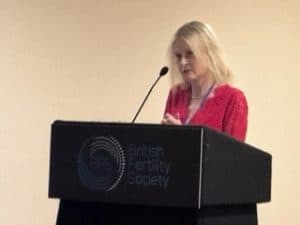4 August 2025
Every year, more than one hundred and twenty countries worldwide come together to recognise World Breastfeeding Week, which this year runs from 1 – 7 August 2025. It seeks to foster an environment which uplifts and empowers women, parents and families and provides them with help and supportive environments along their parenting journey. World Breastfeeding Week is more than a celebration, it is also a time of education. Knowledge and awareness surrounding breastfeeding helps equip new parents with accurate information about nutrition, health and well-being so they can make informed decisions about their baby’s development through early childhood. This information includes the understanding that breastfeeding, for all its benefits, isn’t always possible or necessary and that parents can also successfully bottle feed using formula. As such, World Breastfeeding Week is there to support everyone including those who, for reasons in or out of their control, are unable to breastfeed.
What are the benefits of breastfeeding?
Breastfeeding in the early days and months of a baby’s life can provide antibodies, vitamins and minerals that help protect against common illnesses like diarrhoea and vomiting, sudden infant death syndrome (SIDS), pneumonia and infections. Its benefits can also help reduce the risk of obesity or heart disease later in life. The NHS recommends that babies are breastfed for about the first 6 months (26 weeks) of their life. Thereafter, the NHS advises that breast milk can be given alongside solid food as it adapts to meet babies changing needs as they grow and develop.
Breastfeeding can help mothers and babies form a strong emotional bond. Furthermore, breastfeeding can benefit new mothers from a medical perspective as it is associated with a lower risk of postpartum haemorrhage, breast and ovarian cancers, osteoporosis, heart disease and type 2 diabetes.
What issues and situations can prevent breastfeeding?
It is, however, important to recognise, support and include those parents who may be dealing with circumstances such as breastfeeding grief, post-partum depression, insufficient milk supply, chronic conditions requiring medication which is contraindicated for breastfeeding, mastectomies or previous breast surgery, as well as intended parents through surrogacy, same-sex or transgender couples – all those to whom breastfeeding may not be a possibility.
In these circumstances, formula feeding provides a flexible alternative. Baby formula is still nutritious and contains vitamins to aid growth and development and many babies are wholly or partly formula fed.
Specialist Fertility and Family Law
Breastfeeding Week serves as a reminder that the creation of modern families including those formed through fertility treatment, donor conception and surrogacy raise complex issues from a practical as well as legal perspective. This also makes it important for all parties to obtain specialist legal advice at the outset to maximise a successful outcome and place parenting journeys and family life on a firm footing. In doing so, this addresses:
- Legal issues and family building options due to impaired fertility including cancer diagnosis, unsuccessful conception, age-related fertility decline, change in gender, delayed parenthood (e.g. fertility preservation and maximisation, implications of using donor eggs and sperm and fertility treatment).
- Complex personal and family situations.
- Unexpected death of a loved-one and issues associated with posthumous storage and use of eggs, sperm and embryos in fertility treatment (e.g. due to an accident or illness).
- Legal issues/options associated with assisted conception involving a known donor, co-parent or identity-release or non-identifiable donor (e.g. legal parentage, parental rights, financial responsibility and disputes).
- Legal and wider aspects of international surrogacy or a UK surrogacy arrangement.
- Difficulties with storage and use of frozen eggs, sperm and embryos in fertility treatment in the UK (e.g. problems with consent).
- Issues with import of frozen gametes/embryos into the UK for use in fertility treatment and surrogacy (e.g. due to anonymous and commercially obtained gametes and embryos engaging UK public policy restrictions).
- Issues with the export of frozen gametes and embryos abroad for use in fertility treatment and surrogacy (e.g. consent and storage term difficulties).
- Legal and biological parentage issues and disputes (e.g. concerning DNA testing, direct-to-consumer genetic testing, rectification of birth certificate, declaration of parentage, step-parent adoption, recognition of overseas adoption, parental order).
- Care and upbringing of children following a dispute with an ex-partner, parent, donor or surrogate (e.g. contact, residence, financial arrangements, parental responsibility, specific issue or prohibited steps).
- Expert witness fertility, surrogacy and donor conception law services.
Do you require effective strategies to plan fertility and preconception, pregnancy and birth, parentage or the upbringing of children? If you would like to discuss your situation or if you require specialist fertility, donor conception. surrogacy and/or family law assistance or advice, please contact Louisa Ghevaert by email at louisa@louisaghevaertassociates.co.uk or by telephone +44 (0)20 7965 8399.



Images: Louisa Ghevaert CEO & Founder Louisa Ghevaert Associates




